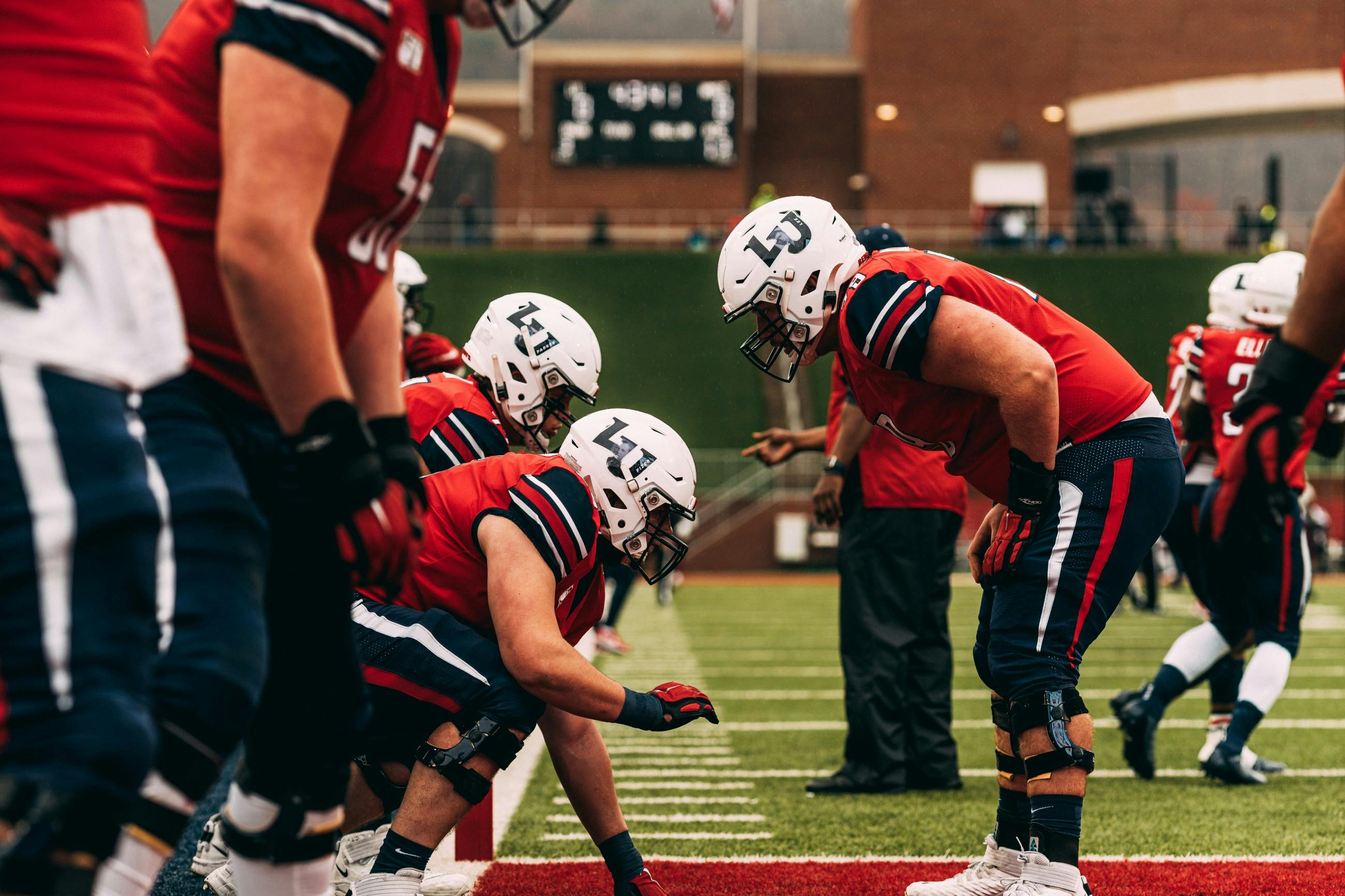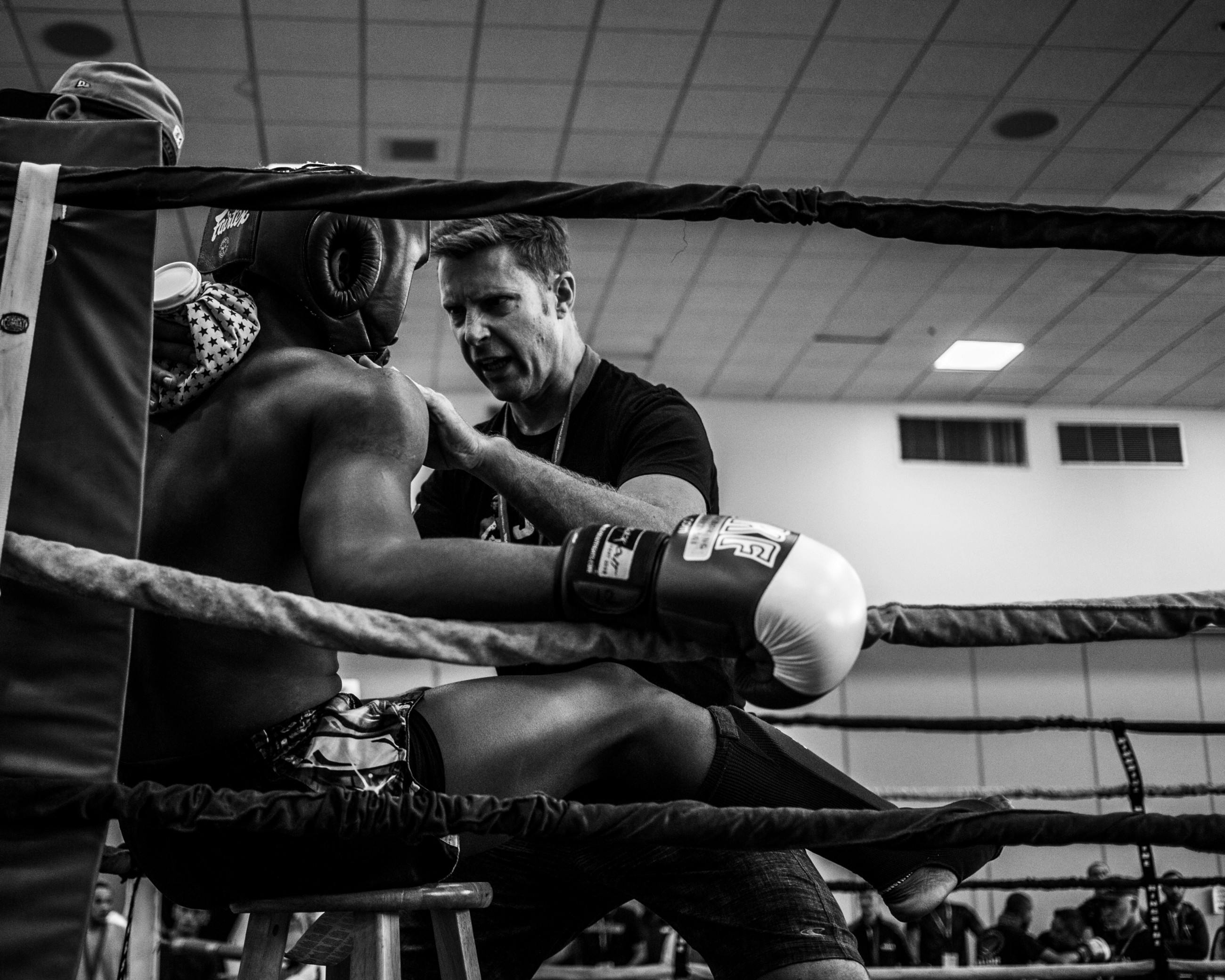What it truly takes to be a leader ?
Qualities of a good leader.
Table of contents
- What it truly takes to be a leader ?
- Who is a leader ?
- Attributes of a leader
- 1. Visionary and thinker — View of big picture
- 2. Planner or Strategist
- 3. Passionate, self-driven and keen on learning
- 4. Team builder
- 5. Owns the risk and responsibility
- 6. Mentor / Guide and Motivator
- 7. Facilitate and empower teams
- 8. Play the cards as required
- 10. Compassionate
- 11. Result oriented and decisive
In this post, I will talk about what actually leader means and what kind of attributes make one a leader. Leadership is all about building a team and driving them all to a larger goal with a sense of achievement and happiness.
What it truly takes to be a leader ?
Leader or leadership is a word which is casually used for boss or reporting manager or anyone in professional hierarchy above you. Does it really mean that ? In this post, I will talk about what actually leader means and what kind of attributes make one a leader, not just the position he or she holds. Being manager or boss is totally different than being a leader. To put it in simple way and to differentiate between both, I would say — Every leader is normally a manager or boss of someone or something, but every manager / boss may or may not be a leader. So what it means is that, being a leader means a lot more than just being a manager or boss.
Who is a leader ?
If we go by literal meaning of Leader, leader is someone who leads/drives something (organization, initiative, project etc.) to a goal. Leader is not a position or a title, its a role that one plays in, to define and achieve a defined objective. It’s quit possible that one plays a role of leader in one initiative and plays a role of contributor in another initiative — although it’s very rare to see leaders being just contributors because of their inherent qualities, which I will talk going forward.

To understand, how a true leader looks like at 10,000 feet, let’s take a hypothetical case: Think of group of hikers and their leader. Let’s say their goal is to reach the peak of hill in least amount of time. Leader has lot of roles to play in it. He/she needs to define bigger vision or goal (reach the top in given time). Leader needs to chalk out a plan with team and have a rough idea of the path they will follow to climb up the hill. They need to help each other to reach the goal as unit. Leader needs to continuously motivate the team to not give up. He/she needs to measure the progress of team against time (control mechanism) and needs to re-invent the plan if the original one doesn’t working. These are some of the things a leader needs to do, but most important of all is to be result oriented along with being compassionate. He/she needs to build and understand the team well and also let the team enjoy the journey to hill top and eventually celebrate the achievement as a team, once they reach the top — after all leader is a human first and must be compassionate. More on compassion in later part of this post.
In short, a leader needs to define and drive the initiative end-to-end, to reach the goal, so whatever it takes to reach the goal, comes under leadership.
I would say keep this example in mind while you cover rest of this post. It may help you to correlate the ideas.
Attributes of a leader
One doesn’t become a leader by just title or designation, one needs to have some core attributes / qualities to be called as a leader. Let’s see what are some of those qualities. Leader should be:
1. Visionary and thinker — View of big picture
“A leader is one who sees more than others see, who sees farther than others see, and who sees before others see.” - Leroy Eimes
Leader must be visionary. By visionary I mean, who has very clear big picture of where to go and somehow figures out a way to reach there. It’s perfectly fine for a leader to have a vision with no plans to start with, as plans keep on changing as a reflection of circumstances. He must be able to see things in future before most of us could even realize it happening. Leader should be able to visualize and conceptualize the things that are far fetched and considered as not so possible today. Think of Bill Gates — he was able to see the value of personal computers (PCs) in 1970 when most of the people at that time were still new to computing. He could see what change computers are going to bring in world just in 10 to 15 years, so he planned to tap that massive opportunity. Similarly in late 1990’s, Jeff Bezos of Amazon was able to see the world is soon going to change with internet coming in and how its going to change the way people will shop.

Vision is not just the statement to make, but should actually be a belief of leader and he must make it a dream for his team too. Vision should be ambitious but not be over-ambiguous, as over-ambiguous goals leads the team to nowhere. The vision or goal defined by leader should be very clear, concise and achievable (may be hard to achieve, but still achievable).
2. Planner or Strategist
“A vision without a strategy remains an illusion.“ - Lee Bolman
As said earlier, plans may keep on changing considering the changing circumstance, but important part is to have some plan. As a leader, one must have a great plan (what, how and when needs to be done) to achieve the goal/vision and series of back-up plans as a fall back. You can not see all the hurdle on your way when you start but one should be flexible and adaptive enough to change the plan and address the hurdles as and when required on the way.

Being a leader, one should be flexible (agility is the one of the key considerations). One needs to have bigger picture as well as feedback mechanism from grass-root level to correlate things and change the plan accordingly — feedback correction loop. Let me explain it with an example of team. Think of a team captain, he needs to have broader plan based on his team’s capabilities, strength and weaknesses of competing team, their past experiences and how different strategies in past has played role in winning or loosing games etc, but he also needs to consider grass-root level (granular) factors like what is the physical and mental fitness level of each team players on the game day, is the crowd in stadium supportive (motivation factor), how well prepared the pitch or ground is, if some players gets injured on ground who should replace him/her and many such small but important granular factors that can change the plan for the day of competition.
In short, leader needs to be a great planner who continuously evolves the plan considering the circumstances. Having vision is one thing and plan to achieve that vision is another thing. Many people have great idea and can talk big but when it comes to planning and execution, many fails there.
3. Passionate, self-driven and keen on learning
“Success is not final, failure is not fatal: it is the courage to continue that counts.” - Winston Churchill
One can not be a leader, if one looks out for instructions from someone around him/her. Leader needs to be self-driven and for being self-driven he/she must be obsessed with the vision or goal. Passion is the key ingredient to drive any initiative. If you lack passion in your area of work, you will eventually loose interest and will give-up on the way. Passion is so critical that it can make or break things for you. If you have a passion clubbed with conviction to achieve the vision, no matter how many hurdles come your way, it will drive you to reach the goal and achieve that vision. Even if you don’t have resources, plan and other ingredients but still have vision, passion and conviction, you will figure out all other things (plan, customers, resources — team, investment etc.). Being human, leader can not always be perfect and he/she need not to be, rather he/she should be open and flexible to evolve things based on his/her learning from surrounding circumstances.
Another good thing about passion is that, whatever happens, it will never let you give-up, so if you hit a hurdle and get into uncharted territories, it will help you cross that too. At such times where leader ventures into unknown areas, his/her openness to get advise, feedback and to experiment and learn makes the difference. He/she needs to be experimental and must carry a mindset of fail-fast, learn, refine and retry. If a leader is in dark, he/she should seek out for advise from experts and also should never hesitate to try different options available on the table and learn from those experiments. All this will build an experience which one can leverage further on the way.

One personality that naturally comes to mind for passion and self-driven attribute is Elon Musk. He came up with big dreams, have big vision and ventured into unconformable and totally unknown territories from much more stable and known space of computer technology and finance. He challenged the normal, pushed the boundaries further, failed, retried multiple times and succeeded eventually.
4. Team builder
“If you want to go fast, go alone. If you want to go far, go together.” — African Proverb
The above quote sums up the gist of this point. It’s important to remember, that all big milestones achieved by mankind are achieved by great team not just by their leader or one person. To go far, one needs to build a great team of innovators and achievers that comes with the same conviction as that of leader to achieve the vision.

To achieve the larger goal and to build the right kind of culture, it’s important for leader to attract more smarter people who carry the same or even higher level of passion, energy and positivity. Eventually leader needs to make the process of team building independent of him/her and enable people to attract even more smarter people in an organization. To build great teams, there is a single thumb rule — every new hire should be smarter than earlier hire. So some key points for team building are:
- Don’t hire just workers, as workers tend to work on what they are assigned to. Smart people on other than will question, learn, innovate and deliver more and better than what they are expected to. So hire people who are smarter than you or at least as smart as you. Hiring is a recursive process, so if you start upwards, you raise the level of hiring with every hiring cycle. Remember “Smart people attract even more smarter people”
- Hire people who not afraid to even question the fundamentals. This is important as it will brings new perspective. For these people, if things doesn’t make sense, they will question it, even if it is done since beginning and is a defined norm. This attribute shows the inquisitive nature of a person which is key for innovation. They are keen on learning beyond what they may be working on. This is the key attribute of the people who will go beyond limits to get the things done right way.
- Hire people who carry most or all attributes of being a future leader as that plays an important role when the organization grows. By being a leader here means not just a people leader, but a person who owns and drives things of his own, it could be in any space (finance, technology, hiring, delivery etc) or at any level (senior, mid, junior levels).
Bottom line: Hire smarter people as they will attract more smarter people and eventually these people will build the culture which is one of the important factors for any team’s success.
5. Owns the risk and responsibility
“A good leader takes a little more than his share of the blame, a little less than his share of the credit.“ — Arnold Glasow
Many time leader needs to walk on unknown paths as torch bearer, so their is always a high risk of failures, but this should not deter him/her to achieve the goals/vision, rather it should make him more innovative and experimental to try out new things.

One the way to goal if something goes wrong, it should not be treated as failure, but as a learning. Leader needs to take responsibility of taking wrong decisions but at the same time learn from those to avoid such mistakes going forward. In general, learning is never ending process and that is even true for leaders.
6. Mentor / Guide and Motivator
“Before you are a leader, success is all about growing yourself. When you become a leader, success is all about growing others.” — Jack Welch
Leader needs to nurture the team like a loving parent — he/she needs to let the team venture out, experiment, learn by mistakes but at the same time also guide them wherever they are lost. He/she needs to correct the team’s behavior, action, attitude, wherever he/she sees an issue and needs to appreciate them where they are right.

Like a parent-child relation, leader and team relation should also be friendly, open, transparent and encouraging for all involved. He/she needs to be there working along with the team and mentoring / guiding them as and when required. Leader needs to make it very clear by actions that he/she is not apart from a team but is a part of a team. He/she does not stand above them, but with them.
Leader also needs to keep the team motivated to reach the goal. We all are humans, and being humans we have ups and downs cycles. If team gets demoralized, its the job of leader to boost up the team’s moral and show them the ray of hope or path to greener fields. He needs to have close connect with his team members, be compassionate and needs to understand them at different levels. Having a close connect will allow leader to figure out what and when things go wrong with the team members, to support, motivate or facilitate them as required.
7. Facilitate and empower teams
“The greatest leader is not necessarily the one who does the greatest things. He is the one that gets the people to do the greatest things.“ — Ronald Reagan
Leader need not be an expert or better skilled in performing the day to day tasks that normally his/her team performs. If the leader is hand-on and can roll-up sleeves to perform the actual task in hour of need— nothing like it, but that should not be an expectation from a leader on regular day.

The role of leader is of enabler and catalyst who can enable and empower the team to achieve the larger goal as a unit not just as individuals. Whatever is required to enable a team (could be training, team bonding, motivating, making resources available, connecting with right partners etc.) and make them feel happy as a family, who row the boat together, is leader’s responsibility.
8. Play the cards as required
“Always put your best foot forward, because you never know where your next step may lead you.” ― Stephan Labossiere
Every human is different from others and carry different capabilities and skill levels. As a leader, one should very well be aware of the strengths and weaknesses of each of his/her immediate team members.

Considering the situation, one team member may be better suited for given assignment over other team members, where as other team member may be more suitable for different task. As a leader, one needs to invest lot of time and energy to understand each of the team members and gain their trust. One needs to work, eat, slog, party with the team to know the team in and out. If leader knows the capabilities of each of his/her team members and plan accordingly, as well as if team also trusts the leader — the team will work as a well-oiled machine, churning out things as fast a possible.
####9. Exemplary and inspiring
“The quality of a leader is reflected in the standards they set for themselves.” - Ray Kroc
The position of leader can not be imposed, rather it needs to be earned. To be known as a leader, one needs to perform and show an exemplary behavior and actions. The actions of leader speaks more than his/her words, so he/she should live by values that he/she wants others to follow. Leader needs to hold an inspirational position for the team members. He/she needs to be the torch bearer and show the right path, so his actions and words matter a lot.

If a leader wants his team to reach the goal/vision, he/she needs to show and walk on the path along with his/her team. Sometimes he/she needs even be on the ground and be hands-on to even clear the path for the team — lead the team by example. In simple words, leader needs to do whatever it takes to make the team reach it’s goal with a sense of achievement. He/she needs to be an ideal example for his team to look at, not just an ordering machine.
10. Compassionate
“You can have the best strategy and the best building in the world, but if you don’t have the hearts and minds of the people who work with you, none of it comes to life.“ - Renee West
Teams are made of humans and every human have feelings, so its very important for a leader to have human connect with each of his/her team member. We must acknowledge that humans perform best when they are happy doing what they are doing, enjoy physical and mental health, feel safe & comfortable in environment and have a strong bond of care with their colleagues.
One can not be a good leader without being a good human being. Being human doesn’t mean just “being human” but it means, being human at heart. For being human, one needs to be compassionate and empathetic at the core. Being result-oriented and reaching a goal is one part of leadership, but it matters a lot how we reached the goal — by crushing people down or by encouraging them to stand-up and walk again with us.

True leader will never disconnect with his/her team and will always stand with them in their happy and not so happy moments. He/she will be the strongest pillar for the team to rely on during tough times.
11. Result oriented and decisive
“Leadership is the capacity to translate vision into reality.“ - Warren G. Bennis
This point is obvious and you may consider it to be contradictory to above point. I covered this point next to the above one, so that I can discuss them side by side and show you that these points are not contradictory at all. One surely needs to be result oriented to achieve anything, but one should not be blindly result-oriented. As mentioned earlier, it matters to achieve the goal but it also matters how we achieved the goal, so the journey to destination / goal is important and needs to be remember-able, fulfilling and an experience of joy for all who are part of it.

Leader needs to keep a tap on progress towards goal to have a reality check of plan and execution of it — number / results is a systematic way of doing it. Leader needs to be good in interpreting data and make sense of it. That insight into data gives him/her a view of where the team stands on the way to goal/vision. He/she needs to ensure that the whole team works as a unit towards goal and no matter what happens they reach the goal with a great sense of achievement.
I hope this post helps you understand the core qualities one needs to have for being a great leader. I believe some are born leaders and some learn to be a leader, but who so ever it is, leader needs to bring together individuals, motivate and fuel them to achieve a larger clearer goal with compassion and grit.
